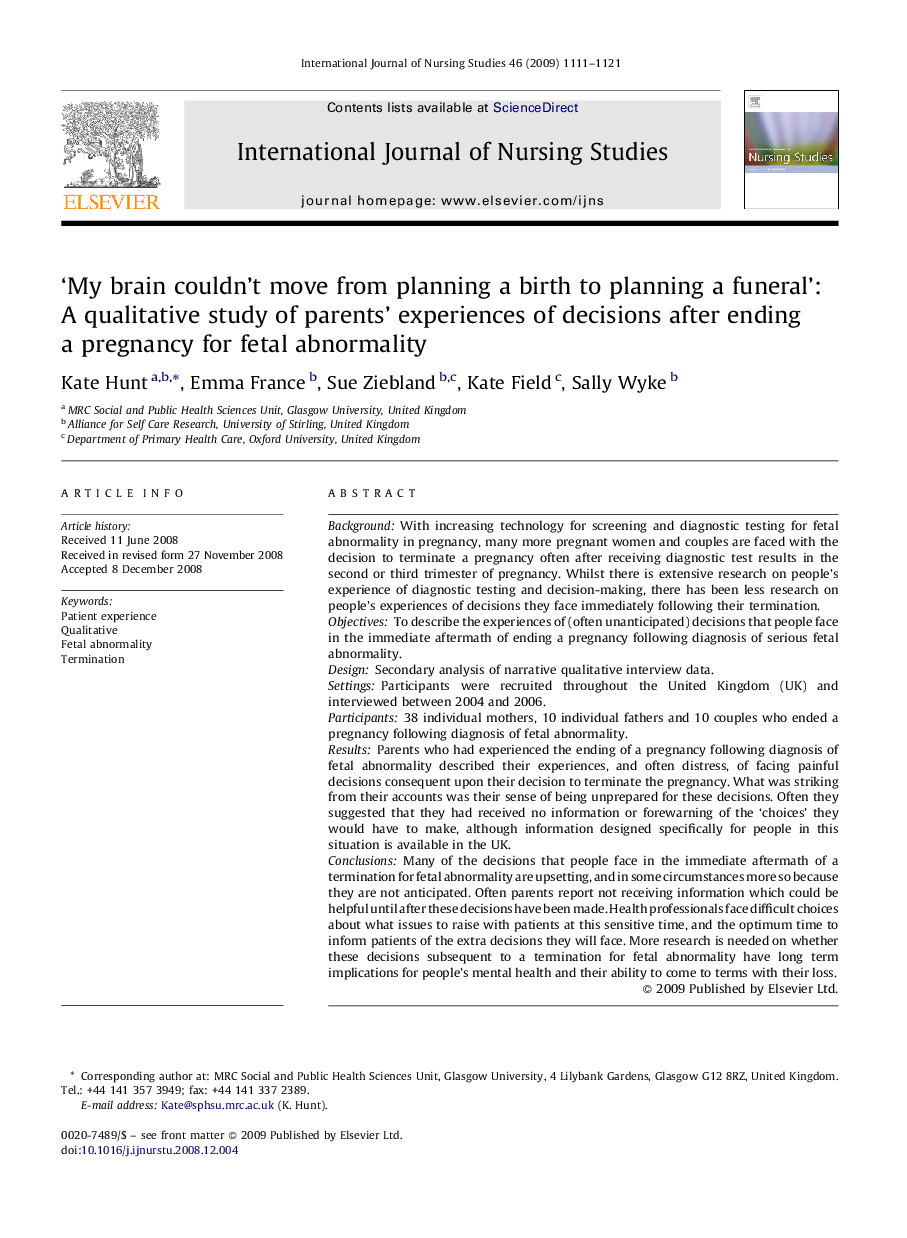| Article ID | Journal | Published Year | Pages | File Type |
|---|---|---|---|---|
| 1076557 | International Journal of Nursing Studies | 2009 | 11 Pages |
BackgroundWith increasing technology for screening and diagnostic testing for fetal abnormality in pregnancy, many more pregnant women and couples are faced with the decision to terminate a pregnancy often after receiving diagnostic test results in the second or third trimester of pregnancy. Whilst there is extensive research on people's experience of diagnostic testing and decision-making, there has been less research on people's experiences of decisions they face immediately following their termination.ObjectivesTo describe the experiences of (often unanticipated) decisions that people face in the immediate aftermath of ending a pregnancy following diagnosis of serious fetal abnormality.DesignSecondary analysis of narrative qualitative interview data.SettingsParticipants were recruited throughout the United Kingdom (UK) and interviewed between 2004 and 2006.Participants38 individual mothers, 10 individual fathers and 10 couples who ended a pregnancy following diagnosis of fetal abnormality.ResultsParents who had experienced the ending of a pregnancy following diagnosis of fetal abnormality described their experiences, and often distress, of facing painful decisions consequent upon their decision to terminate the pregnancy. What was striking from their accounts was their sense of being unprepared for these decisions. Often they suggested that they had received no information or forewarning of the ‘choices’ they would have to make, although information designed specifically for people in this situation is available in the UK.ConclusionsMany of the decisions that people face in the immediate aftermath of a termination for fetal abnormality are upsetting, and in some circumstances more so because they are not anticipated. Often parents report not receiving information which could be helpful until after these decisions have been made. Health professionals face difficult choices about what issues to raise with patients at this sensitive time, and the optimum time to inform patients of the extra decisions they will face. More research is needed on whether these decisions subsequent to a termination for fetal abnormality have long term implications for people's mental health and their ability to come to terms with their loss.
